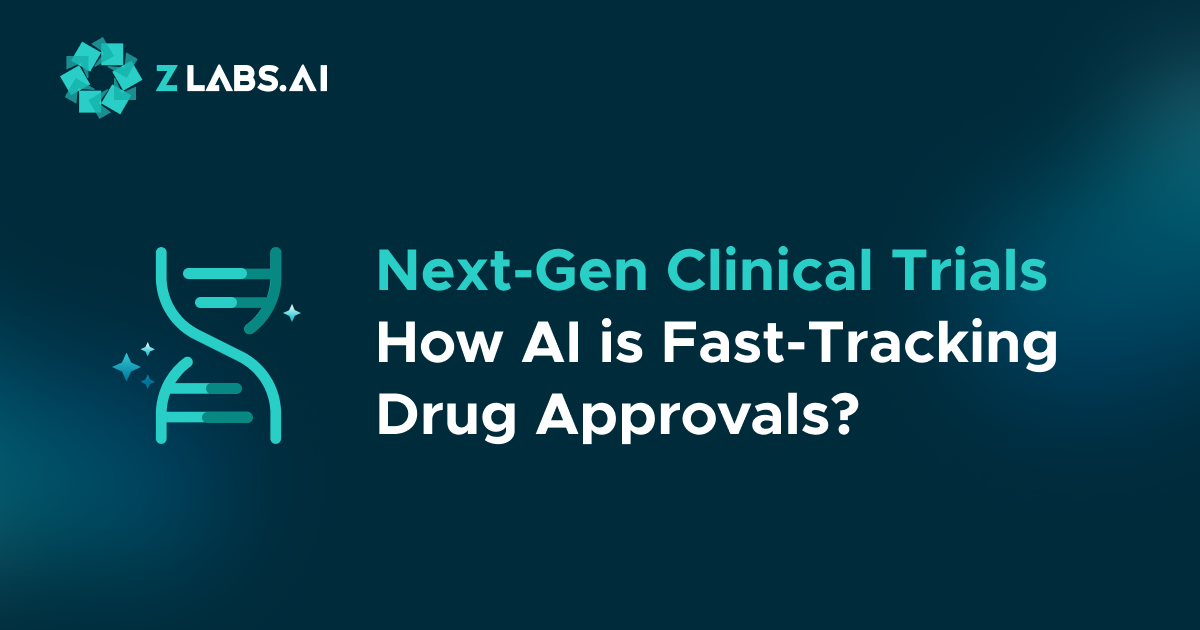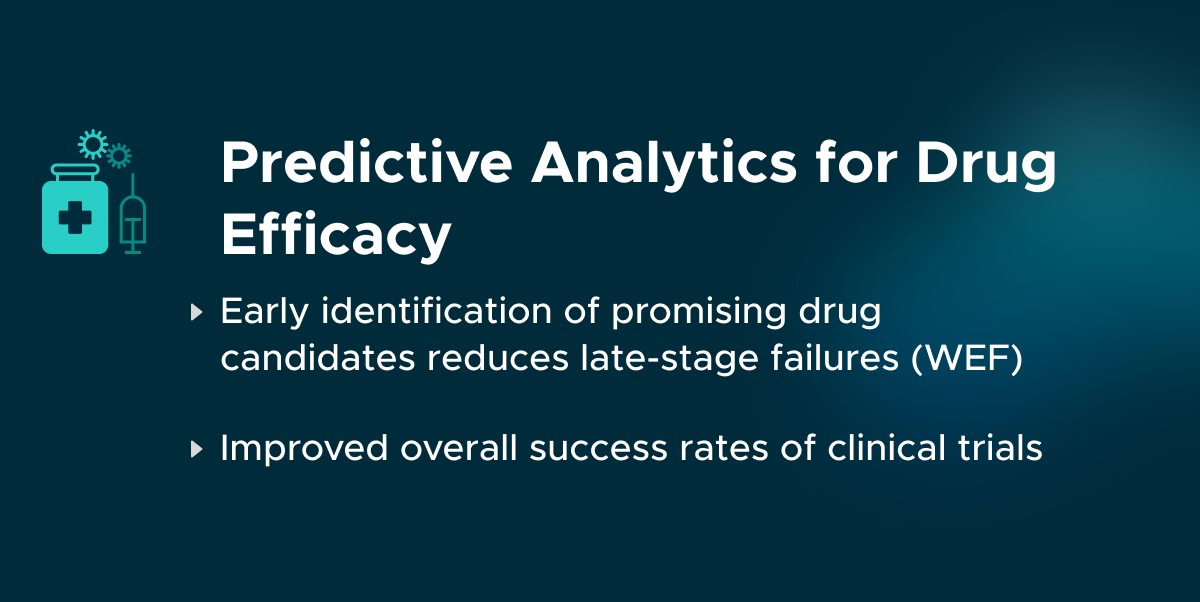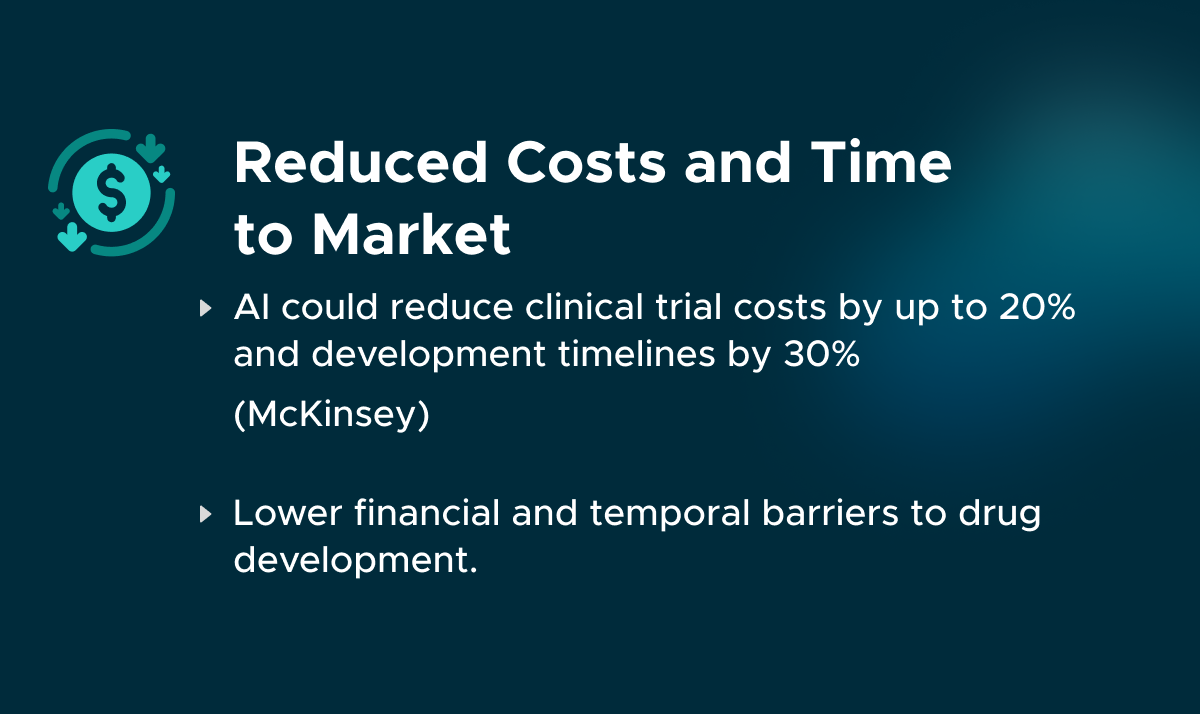Next-Gen Clinical Trials: How AI is Accelerating Drug Approvals
The integration of artificial intelligence (AI) into clinical trials is driving a transformation, accelerating drug approvals with unprecedented efficiency and accuracy. For business leaders in healthcare and pharmaceuticals, staying abreast of these advancements is essential for maintaining a competitive edge and fostering innovation. This blog delves into the latest AI-driven developments in clinical trials, offering actionable insights and key statistics.

Transforming Patient Recruitment with AI
AI's impact on patient recruitment is revolutionary. Traditional methods are often slow and costly, but AI can analyze vast datasets, including electronic health records (EHRs), social media, and genetic information, to identify suitable candidates swiftly and accurately. This not only accelerates the recruitment process but also enhances the diversity and relevance of trial populations.
AI algorithms can reduce recruitment times by up to 50%, significantly enhancing the efficiency of clinical trials. By 2024, AI-driven recruitment is expected to become standard practice, offering a robust solution to one of the most challenging aspects of clinical trials.
Optimizing Clinical Trial Design
AI's ability to simulate various scenarios and predict outcomes is transforming trial design. This technology allows researchers to create more effective trials using fewer resources. AI-driven trial design can reduce participant numbers and shorten trial durations, leading to faster drug approvals.
These advancements can cut trial costs by up to 20% and development timelines by 30%. AI tools identify the most efficient protocols, saving time and money while improving the overall success rate of clinical trials.
Enhancing Data Analysis and Monitoring
The capacity of AI to process and analyze large volumes of data rapidly and accurately is critical in clinical trials. AI enables real-time monitoring of patient responses, detection of adverse events, and assurance of data integrity. This continuous analysis provides dynamic insights, facilitating faster decision-making and adaptive trial designs.
Real-time AI analytics are becoming integral to clinical trials, allowing for ongoing adjustments and optimized outcomes. This ability to adapt and refine trials in real-time is a game-changer for the industry.
Leveraging Predictive Analytics
Predictive analytics, driven by AI, forecasts drug efficacy based on early trial data, enabling informed decisions about the continuation, modification, or termination of trials. Predictive analytics significantly reduces the risk of costly late-stage failures.
By identifying promising drug candidates early, AI minimizes the likelihood of expensive trial failures and increases the overall success rate of clinical trials.

Automating Regulatory Compliance
Regulatory compliance is a significant hurdle in clinical trials, but AI can automate this process by continuously analyzing trial data against regulatory requirements. AI-driven compliance tools preemptively identify potential issues, ensuring that trials adhere to all necessary standards and reducing the risk of regulatory setbacks.
Automated compliance monitoring is becoming a standard feature of AI-driven clinical trials, streamlining the regulatory process and ensuring consistent adherence to regulations.
Reducing Costs and Time to Market
The ultimate goal of integrating AI in clinical trials is to reduce costs and expedite the time to market for new drugs. By optimizing every stage of the trial process, AI significantly lowers both financial and temporal barriers to drug development. AI could reduce trial costs by up to 20% and shorten development timelines by 30%.

Conclusion
AI is revolutionizing clinical trials, making them faster, more efficient, and cost-effective. By embracing AI-driven patient recruitment, trial design, data analysis, predictive analytics, and regulatory compliance, healthcare and pharmaceutical companies can accelerate drug approvals and bring innovative treatments to market more swiftly.
The integration of AI-powered tools like DocuSenze into clinical trial management is set to transform how pharmaceutical companies handle and utilize their data. By addressing key challenges and offering innovative solutions, DocuSenze provides industry leaders with the insights needed to drive efficiency, improve decision-making, and stay competitive in a regulated world. Embrace these technologies to transform your clinical trials and unlock the full potential of AI.